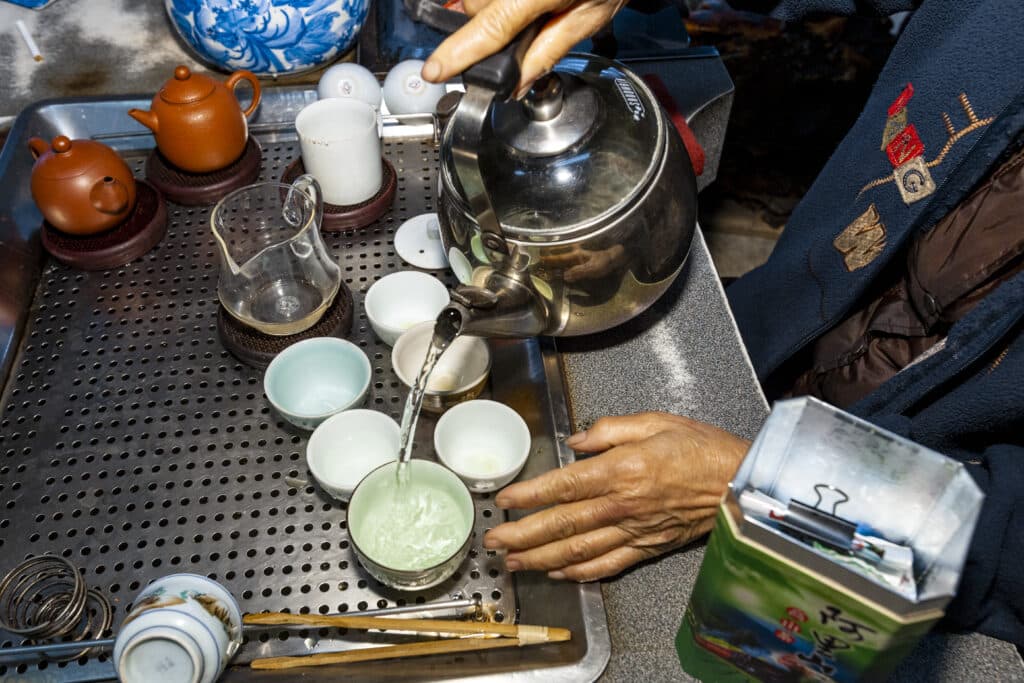ROCKWALL—“We are a community of faith that is much greater than the city that you are in, the town you are in, the neighborhood you are in,” said church planter Millard South. “We have been called to something that is global and there is nothing better to achieve that goal than the Cooperative Program.”
“South,” whose name has been changed for protection in his current role overseas, challenged church planters to focus on the world beyond the front door of the local church during his address at the recent SENT Conference. Sharing his journey from a traditional Southern Baptist upbringing, to his tenure as an executive pastor and then to his experiences as a church planter, South traced his change of mindset throughout his ministry.
“I grew up in Southern Baptist church with old-school Cooperative Program thinking,” South said. “But we live in a different day and age as church planters. We have to somehow allow our people to understand that there is something much greater that we are connected to than just our local church.”
South says God radically changed his thinking about the local church. He was serving as the executive pastor of a church in the Dallas area, seeing many people being baptized and getting awards, but living in what he calls a “Christian bubble.” “There was a day when I sat down and realized I knew no lost people. None at all. I thought, ‘how can this be?’ so my wife and I started to pray for a heart for the lost.”
“That was a dangerous prayer to pray,” South said, “because God would now take us on a journey over the next six years—to plant a church.”
South and his family moved to Martindale to start a church. “It was not awesome at first.” He experienced many struggles as he realized that the world hates Jesus.
“Then God began to work. We started a Bible study and it grew and grew and it was great listening to the crazy questions that lost people would ask,” South added. “What was amazing was that if you reach just a few lost people, all they know are lost people. They didn’t know any Christians. The excitement of Jesus hadn’t worn off of them yet. It was intoxicating as a planter. I absolutely loved it.”
The church plant quickly grew to 200 people in worship and South felt good about that. “One morning I woke up and realized that it had all become about us again. How quickly that snuck in. Our enemy does not want you to think outside. Our enemy wants you to concentrate on yourself first and then your church. Forget the rest of the kingdom work. Forget that there are millions and billions of people dying right now apart from Christ. Only worry about yourself.”
This realization drove South and his church leadership team to wrestle and pray through what it means to be part of a global cause. “I remember thinking, ‘Am I convinced there is no hope apart from Christ? If I am convinced, then I will live my life differently. I will forget about the things of the world. I will no longer be entangled in things that do not matter. And I will lead a church that understands that.”
To make his point, South challenged the church planters to look at how local churches allocate funds to mission causes. “We have been called, especially as church planters and families that are on the frontlines of furthering the gospel, to reach Jerusalem, Judea, Samaria, and the very ends of the earth. Yet, 99 cents of every dollar we take into our churches stays in our local church.
“Yet, we have a passion for the other three. I don’t think anyone in this room would say, ‘I’m not passionate about reaching the ends of the earth.’ I want to do those things. I want to reach my Jerusalem. I want to reach my Judea. I want to see the state of Texas reached. I want to see North America reached. I want to see the world reached.’ There is no better vehicle to do it than the Cooperative Program.”
As a young man, South saw the benefits of the Cooperative Program as he did mission work in the Middle East with a non-Southern Baptist organization. “I had to raise my own funds. I was underfunded and undertrained.” He met a Southern Baptist missionary couple there and was impressed with what he saw. “They were well-funded, well-trained. They weren’t concerned about their support. They were doing the work of the gospel with no other concerns.”
Although the task of doing the work of the gospel is great, South believes that God’s power is greater. “The task is overwhelming. It is too great for us to accomplish. The beauty is that God has called us to the impossible. God has called us to something much greater than our local area of ministry. If our heart really is for Jerusalem, Judea, Samaria and the very ends of the earth, you’ve got four little areas. Forget the 1 percent. Look at breaking up your church budget 25 percent each. Now that would be radically different. If we are convinced that we are the only agent God uses to reach the lost, which we should be, then our lives should look different.”














